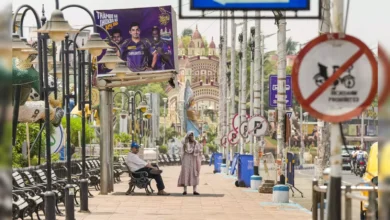Amid the Covid surge, a liberalized vaccine policy to be rolled out with monetary credits given to boost up production
From the 1st of May, everyone above the age of 18 will be eligible to take the vaccine against Coronavirus. To boost up production for the estimated surge in demand, the government gives out a credit grant of 4500 crores to the manufactures.

With cases reaching an all-time high across states, the government of India finally liberalized its vaccine policy so that the same can take place at an accelerated pace. Pricing, procurement, eligibility, and administration of vaccines are made flexible following the concept of an “open-free market “system. The vaccination program until now was closely guarded in its administration and was centralized making it inefficient and resulting in wastage of vaccines.
Everyone above the age of 18 will be eligible to take the jab from the 1st of May. This would be phase-3 of the vaccination program. Vaccine manufacturers will have to supply 50% of their monthly production to the Central Drugs Laboratory of the Central Government while they are free to supply the rest to State Governments and to open markets. The Central share of the vaccines will be distributed to the respective States based on the extent of infection and speed of administration. Wastage of vaccines will lead to negative points.
However, vaccines will be provided free of cost to frontline workers and a prioritized group of populations as before at government centers. Those who are awaiting their second dose amidst the vaccine shortage will be given a priority.
All the vaccinations whether Governmental or Non-Governmental will have to subscribe to the protocols mandated by the Center under the National Vaccination Program. Vaccinations, stocks available at a center, price of the vaccines must be uploaded on the Co-Win app. The same statistics will be publicly available.
All ready-to-use imported vaccines (like Pfizer, J&J) will be only available at open markets and not Government centers. All of these decisions were taken in a meeting chaired by the Prime Minister with various health officials. In the meeting, PM Modi said that the Government has been working hard for over a year to ensure that the maximum number of Indians can get the vaccine in the shortest possible time. He added that India is vaccinating people at a world record pace and that the nation will continue this drive with even greater momentum.
Vaccine manufactures are further incentivized to scale up their productions and to attract new international or domestic players. They are allowed to sell their vaccines in the open market at a pre-decided price which they have been permitted to fix as per requirements. A credit grant of 4500 crores to the two manufacturers SII & BharatBiotech has been given for the same purpose.
The Finance Ministry today gave an in-principal nod to sanction supply credit amounting to 3000 crores to SII & 1500 crores to BharatBiotech. The credit will be sanctioned at the earliest to the nodal ministers in charge for Covid-19 who will then pass it on to the two companies to ramp up vaccine production.
The decision by the ministry comes days after SII CEO Adar Poonawalla requested the government for a Rs 3,000 crore grant for ramping up the capacity of the Covid-19 vaccine beyond 100 million doses a month and had admitted on the company facing huge stress on its production capacity. The company was not making enough profits to scale up production as it had promised to give out the first 100 million vaccines to the government at a subsidized rate.
Experts had earlier suggested opening up the vaccination drive to increase the rate of the vaccination program. Suggestions to make the vaccine available in the open market for those who need it and can afford it was made before too. But the Government decided to take up a welfare state model and centralized the administration of vaccines resulting in various problems. One may think that if the same decision was taken earlier maybe India could have been rescued from the wrath of the second wave. Nevertheless, better late than never.



